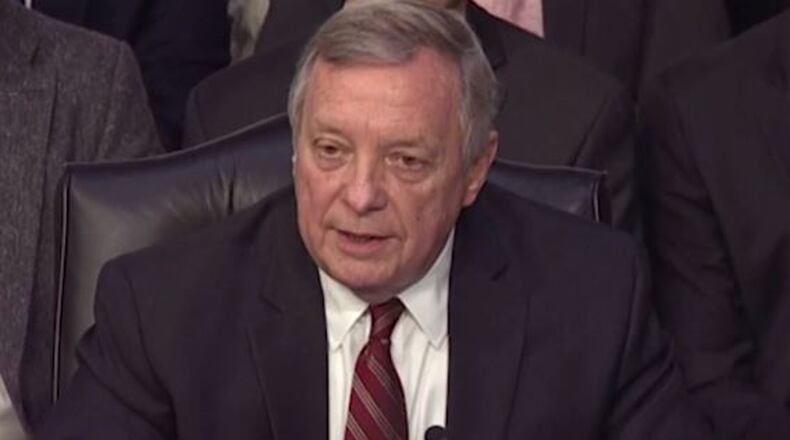Senate Minority Whip Dick Durbin, D-Ill., offered several arguments against Republican efforts to pass a tax bill during an interview on CNN’s “State of the Union.”
One criticism was procedural, echoing earlier Democratic complaints that Republican bills to repeal and replace the Affordable Care Act had been crafted behind closed doors and without normal steps such as committee hearings.
Does Durbin have a point that the Congressional Budget Office has been unusually absent in this process? Not by the way ordinary viewers would hear it.
The CBO is Congress’ nonpartisan number-crunching office, best known for its detailed analyses of pending legislation.
However, there's one exception to CBO's role in vetting proposed legislation: tax bills. That duty falls instead to a similar, nonpartisan congressional office known as the Joint Committee on Taxation.
By the time Durbin had made this comment, the joint committee had already published analyses of the House version of the tax bill. On Nov. 9, the committee published an analysis of the bill’s revenue impact. Two days later, the committee published two other analyses, including one on how the bill would affect various segments of the income spectrum.
As it happens, CBO has also published one analysis of the bill, addressing estimated deficits and debt. But even this is based heavily on the Joint Committee on Taxation’s work, said Douglas Elmendorf, a former Democratic-appointed CBO director who now serves as dean of Harvard University’s Kennedy School of Government.
The joint committee “provides the official estimates to Congress of the effects of proposed changes in the Internal Revenue Code,” Elmendorf said. “When a tax bill is voted out of committee, CBO releases an official cost estimate because CBO’s statutory responsibility is to provide estimates for all bills voted out of committee – but that estimate is simply JCT’s numbers with a CBO letterhead, and with due credit given to JCT in the text of the estimate.”
In other words, Elmendorf said, “the Republicans are doing their duty.”
When we contacted Durbin’s office, spokesman Ben Marter gave a narrower interpretation of Durbin’s words.
He said that in the Senate, Republicans have a potential problem with the Byrd rule, which determines whether a bill can be taken up under “reconciliation,” a process that effectively requires only 51 votes rather than 60 votes for passage.
That violation would have to be fixed before their bill can move in the Senate, but the “fix” to address future revenue projections “is being written in secret, and we likely won’t see that until the bill is on the floor in the form of a substitute amendment, as they did with their health care bill,” Marter said.
Such a substitute amendment would become the bill, Marter said, and under the budget resolution, Senate Budget Chairman Mike Enzi, R-Wyo., “could waive the requirement for a full score analysis before it’s voted on.”
The Durbin team’s analysis is based on speculation about future events. Durbin’s literal words gave viewers a different story — that the Republicans are already blocking CBO from scoring the bill — and that is incorrect on at least two levels.
Our ruling
Under the most obvious interpretation of Durbin’s statement, Durbin is incorrect. The nonpartisan analysis for tax bills is actually a task handled by the Joint Committee on Taxation, and the committee has been actively analyzing the Republican tax bills.
We rate the statement False.
The Republican tax bill is “not being scored by the Congressional Budget Office, as it is traditionally.”
— Sen. Richard Durbin, D-Ill., on Sunday, Nov. 12, 2017 in an interview on CNN’s “State of the Union”
About the Author
Keep Reading
The Latest
Featured



